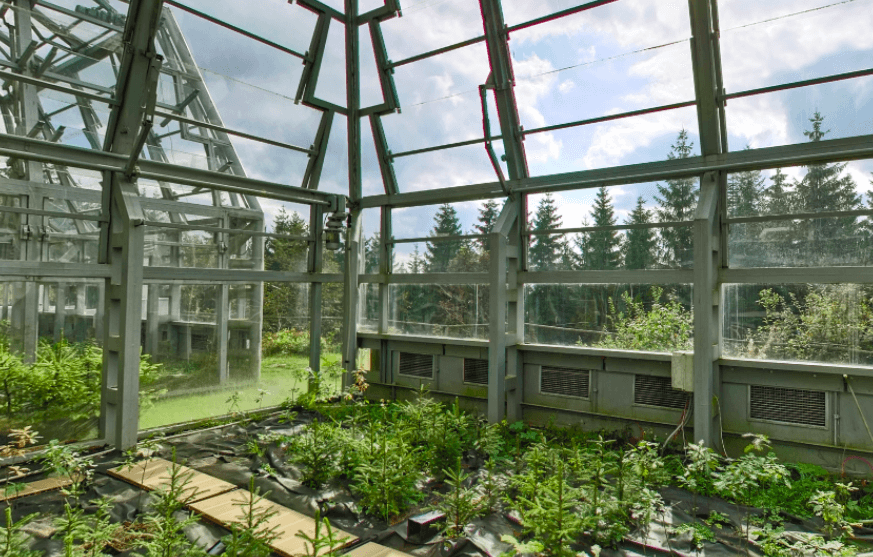prof. Mgr. Ing. Miroslav Trnka, Ph.D. – head
Scientists:
Ing. Lenka Bartošová, Ph.D.
RNDr. Jana Bernsteinová, Ph.D.
Dr. Ulf Büntgen, Ph.D.
Mgr. Tomáš Čejka, Ph.D.
doc. Ing. Petr Čermák, Ph.D.
doc. Ing. Emil Cienciala, Ph.D.
Prof. Dr. Dipl.Ing. Josef Eitzinger
prof. Dr. Jan Esper
Ing. Milan Fischer, Ph.D.
Ing. Lenka Hájková, Ph.D.
Ing. Marcela Hlaváčová, Ph.D.
doc. Ing. Petr Hlavinka, Ph.D.
MA Roland Hollós
prof. Philip Douglas Jones, Ph.D.
Dr. Kurt Christian Kersebaum
Ing. Tomáš Kolář, Ph.D.
Dr. Franz-Sebastian Krah
doc. Ing. Vojtěch Lukas, Ph.D.
Dr. Martin Možný
Prof. Dr. Claas Nendel
prof. Jørgen Eivind Olesen
Ing. Matěj Orság, Ph.D.
Bc. Markéta Poděbradská, Ph.D.
Ing. Eva Pohanková, Ph.D.
doc. Dr. Vera Potopová
Ing. Gabriela Pozníková, Ph.D.
Frederick Luerman Reinig, PhD.
doc. Ing. Michal Rybníček, Ph.D.
Dr. Mikhail Semenov
Ing. Daniela Semerádová, Ph.D.
Ing. Eva Svobodová, Ph.D.
Mag. Mag. Dr. Sabina Thaler
Daniel Thomas Tracy
doc. RNDr. Tomáš Václavík, Ph.D.
prof. Ing. Zdeněk Žalud, Ph.D.
doc. Ing. Evžen Zeman, CSc.
Ph.D. students:
MSc. Juliana Arbelaez Gaviria
Mgr. Monika Bláhová
Ing. Jakub Bohuslav
Ing. Petra Dížková
Ing. Tomáš Ghisi
Mgr. Lucie Kudláčková
Ing. Irena Sochová
Others:
Bc. Jan Balek
Ing. Stanislav Dohnal
Mgr. Jakub Dvořák
Ing. Milan Halenka
Mgr. Monika Hojdanová
Ing. Eva Koňasová, Ph.D.
František Lopaur
Ivan Shkvyr
Bc. Jan Vacek
Ing. Marie Zahradníčková
Climate change results in a need for changes in the agricultural sector. These can already be seen in the cultivation of specific crops, their representation on arable land, the phenological development of crops and pests, growers’ approaches to species composition, and changes in technologies. Likewise, primary producers must cope with the impacts of heightened climate variability in terms of increased occurrence of extreme weather events. In economic terms, the occurrence of agricultural drought plays a key role. In addition to atmospheric influences and genetic characteristics of a crop itself, the soil and processes occurring within it are also integral to the growing process. They are fundamentally affected by temperature and humidity conditions, which directly depend on the energy balance of the active surface and the moisture balance of the specific locality.
The department’s main objectives are as follow:
The main objective is to assess the impacts of climate change on cultivation of the most significant crops. Yields, in particular, will be monitored under historical, current, and expected weather conditions. At the same time, proposals for adaptive measures to mitigate the impacts of climate change or to accelerate its positive impact will be formulated for specific areas and types of agroecosystems.
To fulfil this objective, the following partial objectives will be implemented:
a) determine potential and actual yields of selected crops (mainly winter wheat and spring barley),
b) monitor the phenological development of selected crops and woody plants,
c) define the ecological niche of selected diseases and pests,
d) analyse agricultural drought and its significance in field production,
e) assess soil climate, and
f) conduct research on change in agroclimatic conditions of cultivation.
Key infrastructure (instrumentation, buildings, laboratories):
To achieve the objectives, systems for measuring radiation and energy balance are used, as well as soil temperatures and moisture, both at point and spatial levels, such as a slotted scintillometer or eddy covariance system. Precision agricultural machinery, such as a small-plot harvester and small-plot seeder, are used to set up and run field experiments. Analyses of soil samples and biomass are carried out in specialized laboratories.




